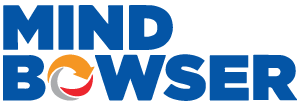Cracking the U.S. healthcare market is a critical step for European companies looking to expand their global presence. The U.S. represents one of the largest and most lucrative global healthcare markets, offering opportunities that can significantly impact a company’s growth and profitability.
However, entering this market comes with challenges, including navigating a complex regulatory environment, adapting to a unique mix of public and private healthcare systems, and competing in a highly dynamic landscape. Understanding these factors is essential for European companies aiming to establish a foothold and succeed in the U.S. healthcare industry.
In a recent webinar hosted with Rebecca Gwilt, Partner at Nixon Gwilt Law, we delved into the complexities of entering the U.S. healthcare market. The discussion featured insights from industry leaders who understand the unique challenges companies face when transitioning from other healthcare systems, particularly those in Europe. The U.S. healthcare market is a unique environment, characterized by a blend of public and private sectors, a web of regulations, and intense competition.
This blog will expand on the topics covered during the webinar, offering guidance on navigating the intricacies of the U.S. healthcare system. From meeting legal and regulatory requirements to crafting a successful go-to-market (GTM) strategy, you'll find valuable insights to help you thrive in this demanding landscape.
➡️ Understanding the U.S. Healthcare System
The U.S. healthcare system is distinct, operating through a combination of private and public sectors. This creates a fragmented environment where payers and providers often have conflicting goals, making it challenging for European companies to navigate. In a recent webinar, Rebecca Gwilt emphasized the need for a solid legal framework before entering the U.S. market, particularly for companies using innovative technologies like AI.

She shared an example of a London-based company that, in 2016, developed AI-powered vision software aimed at diagnosing and providing treatment advice for common health concerns. Their subscription-based model was designed to address the lack of access to primary care physicians across 15 U.S. states. While their goal was straightforward, they quickly encountered hurdles with the complexities of U.S. healthcare regulations.
However, they severely underestimated the complexities of the U.S. regulatory landscape, particularly the telehealth regulations that vary significantly from state to state. They soon discovered the necessity of obtaining different licenses for each state, which forced them to completely rethink their launch strategy, timeline, budget, and geographic focus.
Moreover, they launched their subscription model without fully understanding state laws, insurance regulations, and the fact that their AI algorithm fell under FDA oversight as a medical device. These oversights ultimately led to a complete overhaul of their U.S. expansion plans, emphasizing the need for thorough legal preparation in such a complex market.
Unlike more centralized systems, the U.S. healthcare market is largely market-driven and competitive, with various players, including private insurance companies, government programs, and individual providers, all vying for their share.
One notable aspect is the cultural acceptance of self-pay in the U.S., where patients are often willing to pay out-of-pocket for healthcare services. This contrasts with many European systems where healthcare costs are covered by public insurance.
Moreover, the U.S. has a significant population of low-income patients and specific groups like veterans and the elderly, whose care is paid for or provided by federal and state governments. Understanding these dynamics is crucial for any company looking to establish itself in the U.S. healthcare market.
➡️ Navigating U.S. Legal and Regulatory Landscape
Once you understand the market’s structure, the next challenge is navigating the complex legal and regulatory environment. U.S. healthcare is governed by a wide range of federal and state regulations that you must comply with to operate legally.

During the webinar, Rebecca Gwilt explained that navigating U.S. regulatory law can be a lengthy process, often taking several months to a year. The timeline can vary, sometimes extending to three months or more, depending on the motivation and efficiency of the person driving the process. She also delved into the FDA regulations that companies must consider, highlighting key aspects that are summarized in the image below.
Key federal agencies include the Food and Drug Administration (FDA), the Department of Health and Human Services (HHS), and the Centers for Medicare and Medicaid Services (CMS). These agencies enforce various laws and regulations that impact directly how healthcare companies operate.
One of the most important regulations is the Health Insurance Portability and Accountability Act (HIPAA), which sets the standard for protecting sensitive patient data. Compliance with HIPAA is mandatory for all entities that handle protected health information (PHI).
Additionally, companies must be aware of federal fraud and abuse laws, including the Anti-Kickback Statute (AKS) and the Stark Law, which prohibit certain financial arrangements in healthcare that could lead to overutilization or increased costs.
On top of federal regulations, state-specific laws further complicate the regulatory landscape. Each state has its own set of rules regarding medical records, professional licensing, and fraud prevention. Companies must also consider the General Data Protection Regulation (GDPR) if they handle data of EU citizens, even when operating in the U.S. Understanding and complying with these laws is essential to avoid legal pitfalls and ensure smooth operations in the U.S.
➡️ Building a U.S. Go-To-Market Strategy
With a grasp of the market and regulatory requirements, the next step is developing a strong go-to-market strategy. Timing is crucial in the U.S. market, as entering too early or too late can significantly impact your success. Building the right team is equally important. Your team should include members who are not only familiar with the U.S. healthcare system but also have experience navigating its complexities.
Rebecca explained that if your company involves a medical device requiring FDA approval, the process will naturally take longer. On the other hand, if FDA approval isn't needed, things can move more smoothly. However, success hinges on finding the right person to navigate the complexities, building a solid sales structure, and partnering with the right people. To keep your company running smoothly in the U.S., you'll also need the right business model, reliable partners, and dependable vendors.

Another key consideration is choosing the right business model. Whether you opt for a subscription-based model, fee-for-service, or value-based care, your choice will affect how you interact with customers and how you generate revenue.
Partnerships can also play a significant role in your success. Collaborating with established vendors, technology partners, and even other healthcare providers can help you gain credibility and accelerate your market entry.
Funding is another critical factor. The U.S. healthcare market requires significant investment, not just in terms of capital but also in resources for compliance, marketing, and operations. Securing the right financial partners can provide the support you need to navigate the initial challenges and scale your operations.
➡️ Key Takeaways
To succeed in the U.S. healthcare market, you need to:
Understand the Key Players: Know who the major players are, from payers to providers, and how they influence the market.
Understand the Economics: It’s crucial to clearly understand the economics on both the buy side and sell side. Know who will pay for your services, who will use them, and for what purpose.
Compliance is Key: It’s not just about your product. You need to comply with a wide range of federal and state regulations, depending on who pays, who uses, and who buys your services.
Stay Nimble: Be prepared to navigate the complexities of the U.S. healthcare reimbursement systems and understand the various models at play.
How Mindbowser Can Help You with U.S. Healthcare Market
Entering the U.S. healthcare market is challenging, but with the right approach and understanding, it can be a rewarding venture. At Mindbowser, we specialize in helping companies like yours successfully navigate this market.
From understanding the intricacies of the healthcare system to ensuring compliance with all relevant laws, our team is here to guide you every step of the way. Let us help you turn these challenges into opportunities and establish a strong presence in the U.S. healthcare market.

Manisha Khadge, CMO Mindbowser
Manisha Khadge, recognized as one of Asia’s 100 power leaders, brings to the table nearly two decades of experience in the IT products and services sector. She’s skilled at boosting healthcare software sales worldwide, creating effective strategies that increase brand recognition and generate substantial revenue growth.
Let's Get In Touch
One thing that really stood out to me is the culture and values of the Mindbowser team.

Sanji Silva
Chief Product Officer, Mocingbird
I am so glad I worked with Mindbowser to develop such an Impactful Mobile app.

Katie Taylor
Founder and CEO, Child Life On Call
Mindbowser was an excellent partner in developing my fitness app.

Jirina Harastova
Founder, Phalanx Ubiquity
The team understood the challenges faced by both CME administrators and clinicians and translated that understanding into building the platform. We're totally impressed by their deep domain and technology expertise in creating a solution that empowers both administrators and medical professionals.

Ian Modam
CEO & Co-Founder, Mocingbird
Mindbowser team’s expertise and dedication has been instrumental in improving our platform’s efficiency. We have observed a reduction in average delivery time since the integration. Kudos to the wonderful team!!!!

Anish J. Shah
Founder, BirthModel
Mindbowser built both iOS and Android apps for Mindworks, that have stood the test of time. 5 years later they still function quite beautifully. Their team always met their objectives and I'm very happy with the end result. Thank you!

Bart Mendel
Founder, Mindworks
Some of the features conceived, implemented, and designed by the Mindbowser staff are amongst our most popular features.

Matthew Amsden
CEO, Proofpilot
Mindbowser is one of the reasons that our app is successful. These guys have been a great team.

Dave Dubier
Founder & CEO, MangoMirror
The Mindbowser team's professionalism consistently impressed me. Their commitment to quality shone through in every aspect of the project. They truly went the extra mile, ensuring they understood our needs perfectly and were always willing to invest the time to deliver exactly what we envisioned.

Spencer Barns
Chief Technology Officer, New Day Therapeutics
Kudos for all your hard work and diligence on the Telehealth platform project. You made it possible.

Joyce Nwatuobi
CEO, ThriveHealth
Post a comment Cancel reply
Related Posts
Transforming Healthcare with Progressive Web Apps: The Role of Web Workers and Service Worker
As healthcare technology evolves, progressive web apps (PWAs) are emerging as innovators for healthcare applications.…
Unveiling Twin Health’s Evolution with Lisa Shah
At HLTH 2023, held in Las Vegas, the healthcare industry had a remarkable experience. The…
Unpacking HIMSS23: Our Top 8 Takeaways for Healthcare Professionals
The healthcare industry is constantly evolving with new technologies, trends, and best practices emerging all…









